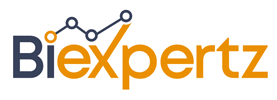Thanks to major advancements in artificial intelligence and machine learning, businesses are making huge investments in advanced analytics to hold a competitive advantage and improve their results. Predictive analytics is a field where businesses use existing data to understand purchasing patterns and predict future trends.
Predictive analytics uses a strategic combination of data, statistical trends, and machine learning methods to predict future outcomes based on old data. Every sector, from retail to banking, uses this technology to understand consumer behavior, forecast inventory, manage capital, and detect fraud. Despite being around for decades, predictive analytics has gained fame due to the increasing availability of data and tools ready for transformation.
In the following article, we will explore how market intelligence can assist with demand forecasting, which is a type of predictive analytics focused on consumer demand. We’ll discuss demand forecasting, how it works, and how to get started using business intelligence tools.
What is Demand Forecasting?
Demand forecasting is a state of predictive analytics that aims to predict customer demand for products and services. It uses past and current data in the market conditions to estimate potential demand, helping to determine the necessary level of supply preparedness to meet that demand.
Demand forecasting plays a crucial role in production planning and supply chain management. Its impact can also be seen in budgeting, financial planning, capacity planning, sales and marketing planning, and capital investment.
Learn more: Which is Better: Power BI or Excel?
The Uses of Demand Forecasting in a Business
Manufacturers, distributors, retailers and several other firms rely on demand forecasting to plan their supply chain activities. This helps them make precise decisions about pricing, inventory management, resource optimization, and more. Key reasons why demand forecasting is crucial in today’s supply chain:
- Enhanced customer loyalty through providing customers with the products they want whenever they want them.
- Effective inventory management to minimize stock-outs and overstocking.
- Efficient scheduling of raw materials and labor.
- Improved capacity planning and resource allocation.
- Better distribution planning and logistics.
- Offering affordable pricing and promotions.
More to know: What is Power BI for Beginners?
The Uses of Business Intelligence in Business Forecasting
Business intelligence serves as a powerful tool for enhancing business forecasting. Businesses can construct strong predictive models by reducing data from diverse sources, editing it for accuracy, and delving into historical trends. These models empower organizations of all sizes and industries to anticipate customer demand, optimize sales strategies, and make informed financial projections.
Business intelligence facilitates supply chain efficiency by forecasting material needs. It extends its influence to marketing, enabling targeted campaigns and measuring their effectiveness. Beyond predictions, business intelligence aids in risk assessment, performance evaluation, and collaborative decision-making through visually appealing data presentations. To some firms, this may sound all too good to be true, but recently, the use of BI in business forecasting has been on the rise, providing businesses with a wide range of advantages with revenue-driven outcomes.
Professional BI agencies such as BiExpertz provide a wide array of solutions to help clients and firms of all sizes improve their digital presence and overall establishment. By managing all your data and offering effortless solutions to address your firm’s specific needs or to rule out underlying issues that may be interfering with your firm’s performance in certain areas, we make it hassle-free for you.
Helpful read: Overcome Your Fear of Advanced Analytics: Empower Yourself Towards (BI).
Four Key Areas for Reliable Demand Forecasting with Business Intelligence
Here, we will delve deeper into the four major areas where business forecasting is seen as a demand with BI.
1. Data Collection
A data warehouse can help you gather business data from various sources and use it for accurate reporting and analytics. Business intelligence powered by a data warehouse can help you correlate data from different systems to gain further insight into the supply chain, revenues, financials, and other areas.
2. Data Analysis
BI software is built to process and measure huge quantities of data. Maintaining a system of records, which includes old records and diverse data sources, ensures that all findings and results are based on the same version of the facts.
3. Data Preparation
Many businesses do not regularly clean, verify, and audit their data. Consequently, 40% of company data is incorrect, incomplete, or inaccessible (Gartner). Business Intelligence software enables you to centralize and monitor your data, ensuring that your analytics are based on reliable data.
4. Risk Assessment
The most common and widespread issue businesses face is not knowing where they are lacking in the business market. They would go for major changes, but that would end up being in the form of trial and error and would not lead them to the root cause of the issue. Through the use of BI for demand forecasting, businesses can identify current and potential risks and determine effective opportunities based on the data analysis tailored to their individual needs.
Gain more insights: Where BI fits into your Data Strategy? Learn More about BI vs. BA.
Over to You
Pre-built dashboards in BI software provide a unified view of results and reports, allowing real-time information exchange. This enables improved preparation and coordination among teams within your firm.
Now is the time to enhance your data quality and effectively plan for demand forecasting by gaining a deeper understanding of the necessary steps. At BiExpertz, we analyze your current systems and demonstrate how business intelligence can establish a strong technological foundation for your company.
FAQ’S
What is forecasting in business intelligence?
Forecasting is an essential part of strategic intelligence. It provides policymakers with insights into potential future conditions, facilitating informed decision-making.
Why is demand forecasting important for the success of a business?
Demand forecasting is crucial as it provides valuable insights into future customer demand. This information enables companies to make relevant supply chain operations, inventory management, and judgments about production planning. Moreover, it plays a vital part in optimizing profit margins, managing cash flow, making capital expenditures, and planning for future capacity.
What are the essentials for good demand forecasting?
The top 5 demand forecasting methods include Historical Data, Market Research and Delphi, Demand Sensing, Predictive Sales Analytics, and External Macro Forecasting.
How does forecasting benefit demand planning?
Demand forecasting provides relevant and precise information about future customer demand. This ultimately helps businesses make informed, more precise decisions that will not lead to uncertain outcomes.

